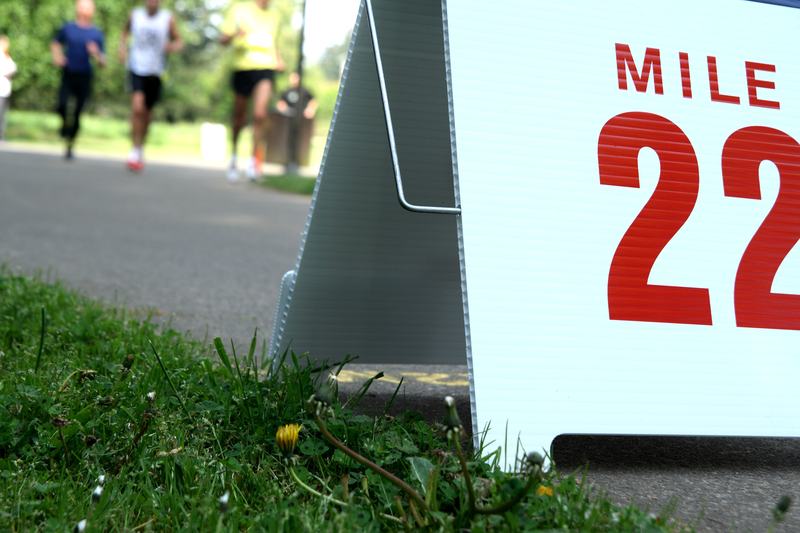With the desire, commitment and the right training program yes you can. Over the past few decades, marathon running has become extremely popular and now just about every major city in the world hosts a marathon. Even smaller towns have joined in and caught “marathon fever.”
Most people view marathons as unachievable and something that they would never try because it would mean certain failure. However, this is not the case at all. Just about anyone in reasonably good health with no serious medical issues can complete the ultimate athletic feat. All it takes is the desire and the decision to finish a marathon while following these steps.
- Find a marathon. Look for a marathon that will give you a minimum of 22 weeks for training. Finding the right marathon for your first is important for several reasons. You don’t want to pick one that is known to be particularly hard or hot. Find a race that has a good reputation for being relatively level in elevation and in a place that has good, cool marathon weather. Pick one in a place you have a connection to or want to visit, such as:
- Where you live. This is an excellent choice (assuming the elevation and weather are good) as you can easily have friends and family meet you along the route for support. This is very important especially in the last 6 miles.
- Your hometown or some place your parents lived. Travel back to your hometown, reconnect with friends and relatives or visit the place where your parents grew up.
- A destination trip suchas London, Paris, Dublin, New York or anywhere you’ve wanted to visit but haven’t been able to.
The main reason to pick the right marathon is to give you motivation to continue your training when you are feeling tired or down. As you focus on your training the excitement of visiting a new place will be extra motivation. If you decide to run in the city where you live, your friends and family can provide extra encouragement.
- Register for the marathon you selected, buy airline tickets (if needed) and tell people. This commitment will also help motivate you. It will help you get out and run when you are tired and help you keep going on your long runs.
- Buy the right shoes.If you don’t have proper running shoes go to a specialty store. These stores will precisely measure your feet, look at your gait, your stride and other running traits. It is worth the extra effort to find a pair of running shoes that match your feet and physique.
- Pick or Find a Training Schedule. A regular jogger who runs 3 miles, 3 to 4 times a week should have no problem getting in “marathon ready” shape in 20-22 weeks. Remember your goal is to finish, not win the race. Many schedules available online are geared to just that, finishing the race. Some have you run 5 days per week, intermittently or 6 days a week. Most have you starting off at a daily distance any healthy person can handle while slowly increasing the weekly total. Additionally, most have you doing one long run every couple of weeks with increasing distance so that 2-3 weeks before the race you will be able to complete a 20-mile run.
- Don’t worry about the long runs.While the thought of running 20 miles may seem impossible, with the right training program you would have completed runs of 18, 16, 14 & 12 miles BEFORE your pre-race goal of 20 miles. Prominent Houston attorney Michael P. Fleming,has run 8 marathons including two in Dublin, Ireland. His advice, “On your long runs, just tell yourself that if you complete that run on that day, you will finish the marathon.”
- Be smart about nutrition.If you are training for a marathon to lose weight, find the right diet and stick with it. It is no fun running 26 miles, 385 yards with extra weight. Plan your diet to reach your ideal weight 2-3 weeks before the race.
- Read blogs and other advice websites.Remember, a big part of your training is motivation to keep going.Reading about others’ experiences and challenges really helps keep you going.
- Train, run and be proud!
What about paying for the marathon trip? While running a marathon in your own city is not expensive, choosing to run a destination marathon can be costly. However, there are many charity organizations such as The Leukemia & Lymphoma Society’s Team in Training which allow you to support the charity by raising donations to cover the cost of the trip. They also provide guidance and support during the training and the race itself.




